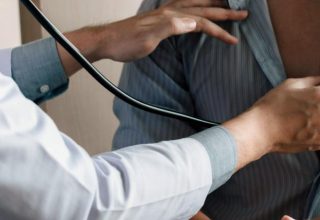Understanding Testosterone Therapy for Men: Benefits, Risks, and Considerations
Testosterone is a vital hormone in men, playing a crucial role in various aspects of health, including sexual function, muscle mass, bone density, mood regulation, and overall well-being. However, as men age, testosterone levels naturally decline, leading to a range of symptoms and potential health issues.
Testosterone Replacement Therapy (TRT) is a treatment option aimed at restoring testosterone levels to normal ranges and alleviating associated symptoms. In this article, we’ll explore the importance of testosterone in men, the effects of low testosterone as men age, the potential benefits of TRT, and the risks and side effects associated with its use.
The Importance of Testosterone in Men:

Testosterone is often referred to as the “male hormone” because it plays a central role in the development and maintenance of male characteristics. It is responsible for the growth and development of the male reproductive organs during puberty, as well as the deepening of the voice, growth of facial and body hair, and increase in muscle mass and bone density.
Additionally, testosterone influences sexual desire, erectile function, mood, energy levels, and cognitive function. Optimal testosterone levels are essential for overall health and well-being in men, supporting physical, mental, and emotional health throughout life.
How Do You Know That You Have A Low Testosterone Level?
Hypogonadism is the medical term for identifying the deficiency of testosterone in men. Along with impacting the sexual desire and fertility of a man, it also calls for many severe health conditions.
Severe health problems associated with a low level of testosterone in an adult man are osteoporosis and anemia. A low testosterone level in men further causes small testes, decreased sperm counts, poor energy levels, and gynecomastia or enlargement of breasts.
Effects of Low Testosterone as Men Age:
As men age, testosterone levels naturally decline, leading to a condition known as hypogonadism or low testosterone (low T). This age-related decline in testosterone production typically begins in the late twenties or early thirties and continues gradually over time.
Symptoms of low testosterone may include reduced libido, erectile dysfunction, decreased muscle mass and strength, increased body fat, reduced bone density, fatigue, mood changes, and cognitive impairment.
Additionally, low testosterone has been associated with an increased risk of cardiovascular disease, metabolic syndrome, diabetes, and other health issues. Recognizing and addressing low testosterone levels is essential for maintaining optimal health and quality of life as men age.
Benefits of Testosterone Replacement Therapy (TRT):

Testosterone Replacement Therapy (TRT) is a treatment option aimed at restoring testosterone levels to normal ranges and alleviating symptoms like infertility associated with low testosterone.
TRT may offer several potential benefits for men with hypogonadism, including improved libido and erectile function, increased muscle mass and strength, reduced body fat, improved bone density, increased energy levels, and enhanced mood and cognitive function.
Additionally, TRT has been shown to improve quality of life and overall well-being in men with low testosterone. By restoring testosterone levels to optimal ranges, TRT can help alleviate symptoms and improve various aspects of physical, mental, and emotional health in men.
Risks and Side Effects of Testosterone Replacement Therapy (TRT):
While TRT can offer significant benefits for men with low testosterone, it also carries potential risks and side effects that should be considered. Common side effects of TRT may include acne, oily skin, fluid retention, breast enlargement (gynecomastia), and changes in mood or behavior.
Additionally, TRT may increase the risk of more serious complications, such as sleep apnea, cardiovascular events, blood clots, and prostate enlargement or cancer.
Therefore, it’s essential for men considering TRT to undergo a comprehensive evaluation by a healthcare professional to assess the risks and benefits and determine if TRT is appropriate for their individual needs.
Close monitoring and regular follow-up are essential to ensure the safe and effective use of TRT and minimize the risk of adverse effects.
Testosterone Therapy For Men: What Are The Risks Of Having A High Level Of Testosterone?
If you are taking testosterone therapy, there are chances of having an excessive level of testosterone in your body. This situation can call for a variety of health problems.
With the presence of excessive testosterone in your body, there will be rapid growth in your facial and body hair. This can also make your behavior more aggressive. Most importantly, an excess level of testosterone in your body promotes infertility.
So, if you have taken testosterone therapy or have been taking supplements for quite some time now, you must do the same under your doctor’s supervision. Further, if you notice any of the symptoms in you, you must immediately seek medical help, as a higher level of testosterone can also cause cancer.
Other complications associated with a high level of testosterone in men are jaundice, enlarged prostate, and liver tumors. An excessive level of testosterone can also be the reason behind your unexplained weight gain. A spike in this hormone also impacts your satiety level. So, you feel more hungry than usual.
Furthermore, when the testosterone level shoots up excessively, you may experience swelling in your feet or legs.
What Is The Normal Testosterone Range In Men?
The American Urological Association has suggested that a healthy man should have a testosterone level of “450—600 ng/dL.” When the level drops below 300 ng/dL, your doctor will ask you to go for testosterone therapy.
You must understand that the level of testosterone will differ from one man to another. Your age and lifestyle are other crucial factors impacting the testosterone level in your body. Further, the testosterone level keeps fluctuating throughout the day. An early morning assessment is the best way to know the testosterone level in your body.
Does A Change In The Diet Boost Men’s Testosterone Levels?
Yes, if one has decided to take testosterone therapy, a change in the diet plan can effectively help to have a healthy testosterone level. Let’s find out the things you can include in your diet for a healthy spike in your testosterone level.
Fatty Fish
Fish oil and omega-3 fatty acids are two of the most beneficial elements to increase the testosterone level in men. You can have fatty fish like sardines and salmons to ensure proper intake of these elements.
However, these same fishes do not cause testosterone spikes in women.
Dairy Products
The intake of milk and other dairy products boosts the level of vitamin D in one’s body. The increased level of vitamin D further causes a spike in your testosterone level.
Other food items that boost the testosterone level in your body are legumes, honey, leafy greens, etc.
Conclusion
In conclusion, testosterone plays a vital role in men’s health, influencing various aspects of physical, mental, and emotional well-being. As men age, testosterone levels naturally decline, leading to symptoms and potential health issues.
Testosterone Replacement Therapy (TRT) is a treatment option aimed at restoring testosterone levels to normal ranges and alleviating associated symptoms. While TRT can offer significant benefits for men with low testosterone, it also carries potential risks and side effects that should be carefully considered.
Consulting with a healthcare professional or TRT clinic is essential to determine if TRT is appropriate and to ensure safe and effective treatment.



